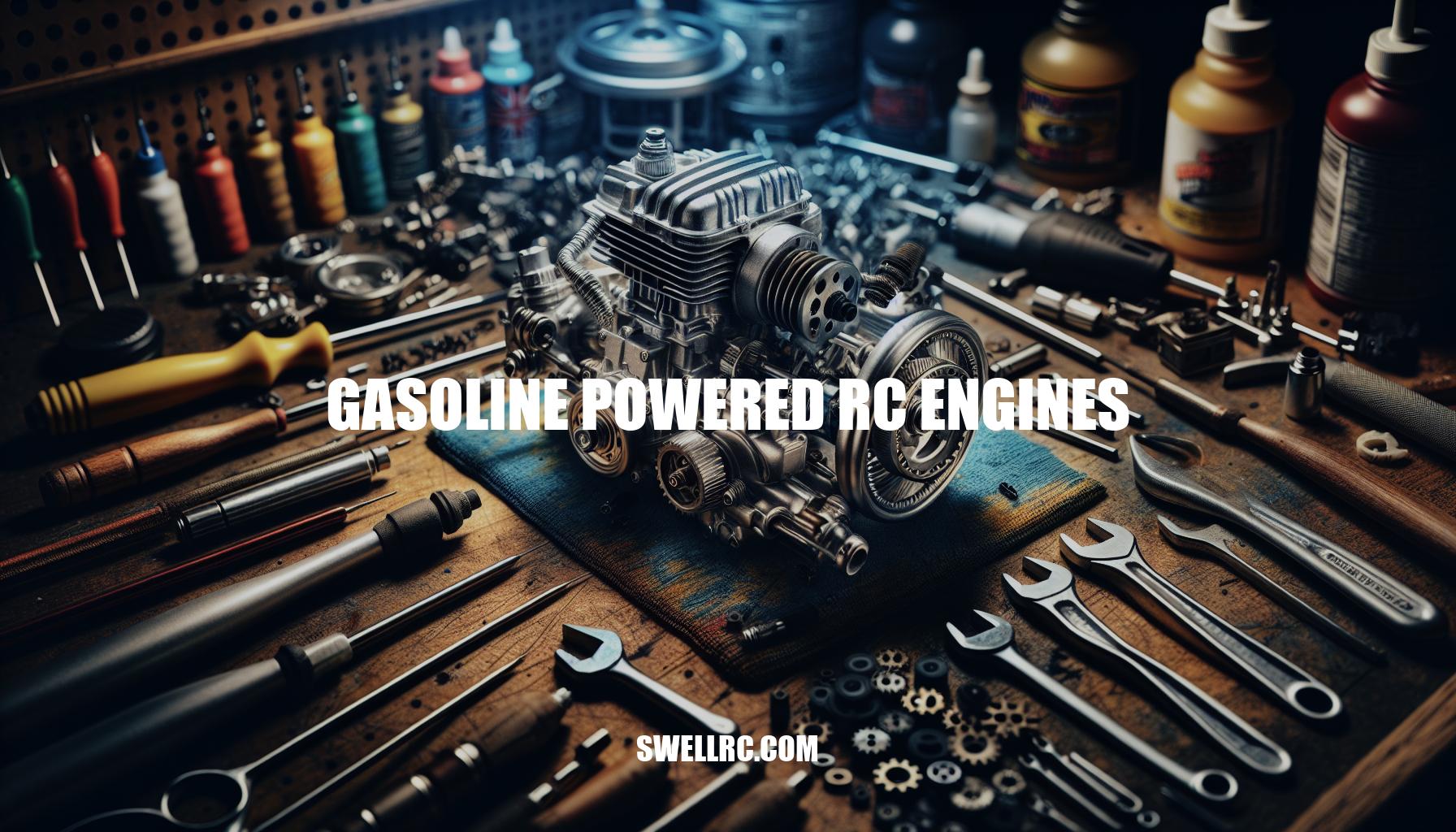Exploring Gasoline Powered RC Engines: A Definitive Guide
Ever marvel at the thunderous roar of a real engine, the vibrations pulsing through your fingertips and into your very core? Well, welcome to the world of gasoline-powered RC engines, often considered the powerhouse of the RC world. These engines, unlike their electric or nitro counterparts, come packed with a certain primal force, a kind of power that makes your heart race almost as fast as the cars themselves. Let’s be real, there’s just something about a gasoline powered engine that makes you feel like a true mechanic, even if your workshop is your living room floor. But don’t let their grit intimidate you, these engines are as reliable as they are strong and with some upkeep, they promise to offer you a driving experience that’s second to none. For some, it’s just a hobby, but for those of us, obsessed with RC, it’s a world where we can control the unbridled raw power with a simple twitch of our thumbs. Get ready to delve into their thunderous world, from their rich history to their different types, big brands, and learn what you need to join the RC elite with your very own gasoline-powered beast. I hope you’ve tightened your seat belt, because it’s going to be a thrilling ride!
The Evolution of Gasoline Powered RC Engines
The popularity and evolution of gasoline powered RC engines have been nothing short of remarkable. Born out of the 1960s, these engines came from an era of discovery and innovation. It was a time when human ingenuity transformed the simple toys of yesteryears into high-powered machines that captured the imaginations of adults and children alike.
The transformation from nitro engines to gasoline was an industry-changing shift. This pivotal switch introduced RC enthusiasts to a taste of real power, with larger and more robust models demanding more substantial engines. These engines were not only stronger but far more economical, fueling the rapid advancement in engine technology.
Fast forward to the present, modern gasoline powered RC engines are now the epitome of power, precision, and performance. These impressive pieces of machinery can be likened to miniature mechanical marvels, able to produce blistering speeds and heart-pounding performances worthy of their life-sized counterparts.
In fact, today’s gasoline-powered RC vehicles can reach such powerful speeds that they hold their own race tournaments, like the renowned ‘RC Speed Challenge’ where the exhilarating rush of power is on full display. This evolution from humble beginnings into powerhouse engines showcases mankind’s relentless pursuit for power and perfection in the realm of radio-controlled vehicles. Giants of technology have taken notice, resulting in companies like Google parent company, Alphabet, investing in radio-controlled models for potential applications in the field of drone delivery. Such prospective advancements indeed raise exciting possibilities for the future of the RC world.
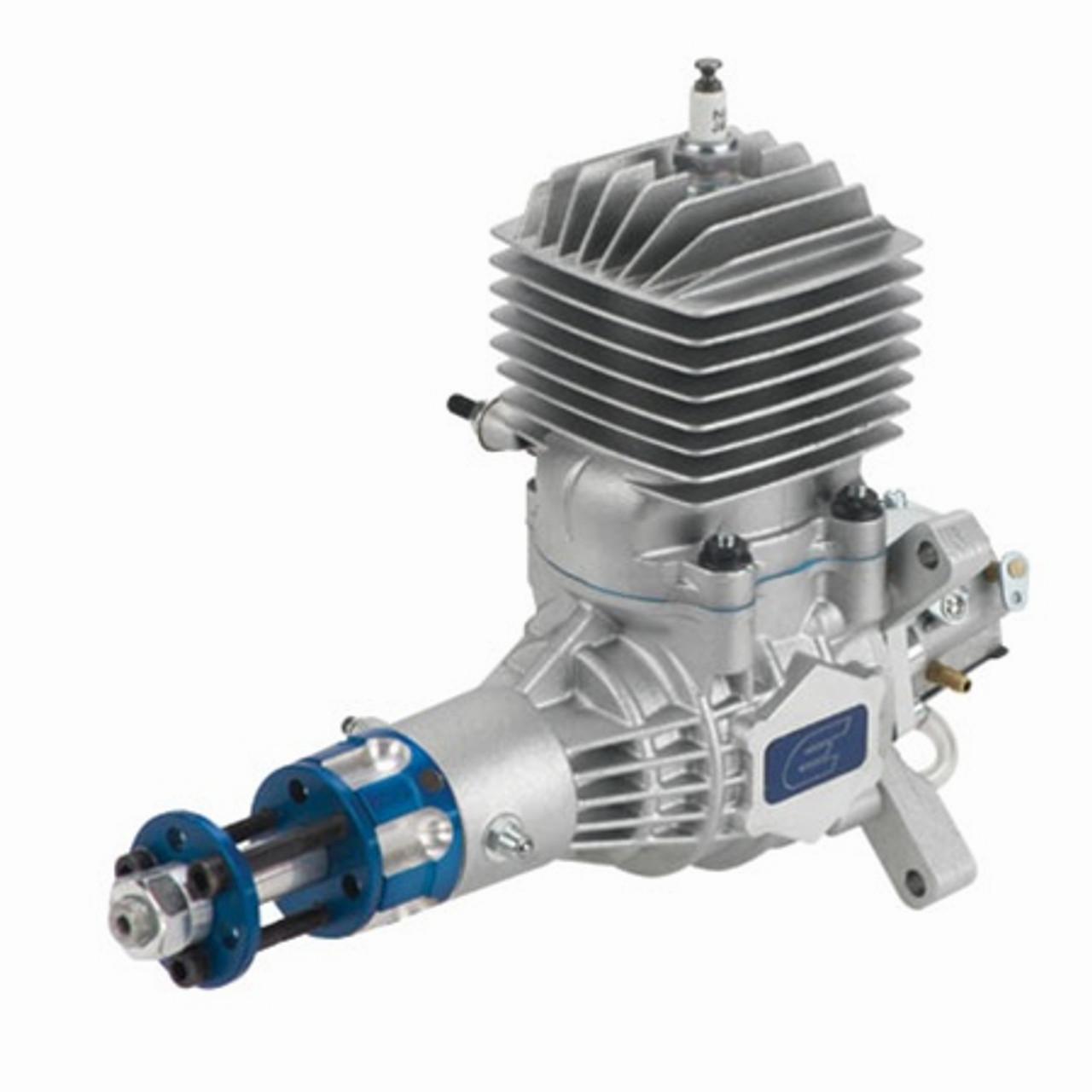
What are the benefits of using gasoline powered RC engines over nitro engines?
Gasoline RC engines, my friend, that’s the way to go if you’re looking for power and longevity, hands down. Imagine this— you’re knee-deep into your RC hobby and, instead of having to worry about the short lifespans and constant upkeep of nitro engines, you get to enjoy the consistent hum and power of a gasoline beast. Those things are built to last, I tell you!
RC enthusiasts often gravitate towards gasoline-powered engines because they offer a lengthier run time. Imagine the fun and excitement you can have without the constant pause to refuel! You’ve got more time to showcase your skills and dazzle your mates. Plus, the fuel costs are usually lower – a brilliant advantage, especially if you’re like me and love to spend hours exploring and practising new techniques with your trusty RC car.
Oh, and here’s the cherry on top— easy maintenance. If the thought of constantly tinkering with your engine gets you all grumpy and frustrated, then a gasoline engine is your best pal. Simply put, these engines are tough, easier to maintain, and more resilient to temperature fluctuations.
And don’t get me started on the power. The power to weight ratio in gasoline engines is much better. Things like this make it an ideal choice for larger scale models. Trust me, you’d rather have a beast of a gasoline engine power your large-scale model than relying on a nitro engine.
So, there you go, my friend. Jump onto the gasoline RC engine bandwagon, and trust me, you’ll not regret it. From longer run times to more power, and cost-saving fuel efficiency to being easier on maintenance—It’s a hard offer to pass on. But don’t just take my word for it—give it a go, and experience the difference for yourself.
The Different Types of Gasoline RC Engines
Now, let’s dive into the fascinating world of gasoline powered RC engines. You might be surprised to know that these engines can be classified based on different factors, such as the number of strokes and power output, and even their specific application in the RC world.
Firstly, there are 2-stroke engines, which are considered the best fit for RC cars. Their popularity lies in their simplicity and high power-to-weight ratio. An excellent example of this is the Zenoah G320RC, with its staggeringly powerful 31.8cc displacement, waiting like a wild beast to be unleashed on the racetrack.
- 4-stroke engines on the other hand, are usually reserved for RC planes. While they’re not as mighty as their 2-stroke counterparts, these engines charm us with their realistic sound and fuel efficiency. The SAITO FG-60 R3 is a formidable choice with its remarkable 60cc displacement.
- Then we have the specialized marine engines, designed specifically for RC boats. These engines, like the Zenoah G260PUM, have waterproof features and are brilliantly engineered to provide stability in water.
What’s really fascinating about these engines is how they’re meticulously tailored to each application, ensuring a full-throttle, adrenaline-pumping experience for enthusiasts. Remember, choosing the right engine can make all the difference between victory or disappointment. Think about it – gasoline powered RC engines are the heart and soul of your model, dictating its performance at every twist and turn.
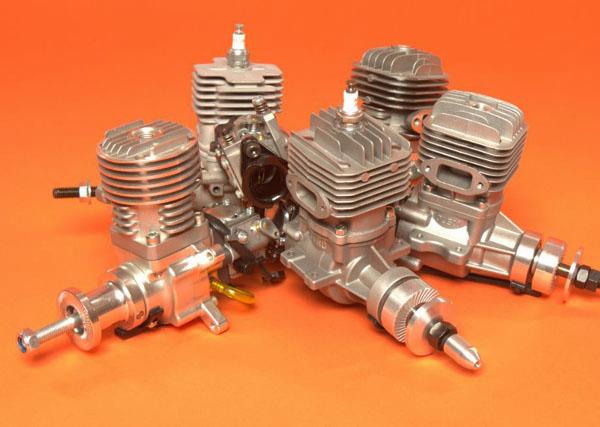
What are the different types of gasoline powered RC engines and their applications?
Driving an RC car is an adrenaline-pumping hobby, isn’t it? But the heart of the fun is the engine – especially if it’s gasoline-powered! There’s plenty to consider, so let’s dive in.
The most common type is the 2-stroke engine. This feisty little thing is known for packing quite a punch; in fact, it is preferred for racing because it’s akin to riding a wild horse – exciting but needs careful handling. It uses a fuel mixture of gasoline and oil and works in two cycles: intake and exhaust. You can really feel the rush at high speeds with this one!
Then there’s the 4-stroke engine which might be perfect if you are a leisure hobbyist, primarily because of its smooth operation and better fuel efficiency. Even though it may not match the 2-stroke in speed, it certainly outmatches it in terms of stability and endurance – definitely one for the long rides!
A lesser-known but equally significant type is the rotary engine. It’s quieter and more compact, which makes it ideal for smaller RC models. And don’t let the small size fool you! Rotary engines still offer a delightful blend of power and performance.
Oh, and if eco-friendliness is a priority for you (kudos if it is!), you could opt for the hybrid engine. It uses gasoline for internal combustion, but it also utilizes electric power for enhanced efficiency, making it a fantastic choice for those who want that extra level of sophistication and sustainability!
Remember, each one brings a different flavor to the RC experience. Clear skies, open fields or dirt tracks, what would you choose? It’s all about what thrills you the most, my adrenaline junkies!
The Top Brands in Gasoline Powered RC Engines
Stepping into the world of gasoline powered RC engines, one is met with an array of reputable brands that dominate the market. A few key players demand recognition for their prized products that have been celebrated by enthusiasts and hobbyists. Zenoah, for instance, is known for its superbly engineered engines. Their flagship product, the Zenoah G320RC, is favored by many for its incredible power output and durability, dramatically amping up the thrill of the RC experience.
Taking a different approach, DLE Engines places a strong emphasis on optimizing the power-to-weight ratio of their engines. One of their top performers, the DLE-35RA, is renowned for its superior power and remarkably lightweight design- a mere 2.6 pounds.
Completing this triumvirate is DA Engines, who have carved out a niche for themselves with their focus on longevity and efficient performance. Their DA-35 model is hailed as the workhorse of gasoline powered RC engines, revered for its unparalleled reliability.
To explore more about these brands and their exceptional offerings, enthusiasts can visit well-known online forums like RC Universe or RC Groups for in-depth reviews, discussions and recommendations. Each of these brands carries their unique strengths, but they are all united by one thing – their unyielding commitment to delivering a powerful and thrilling experience with their gasoline powered RC engines.
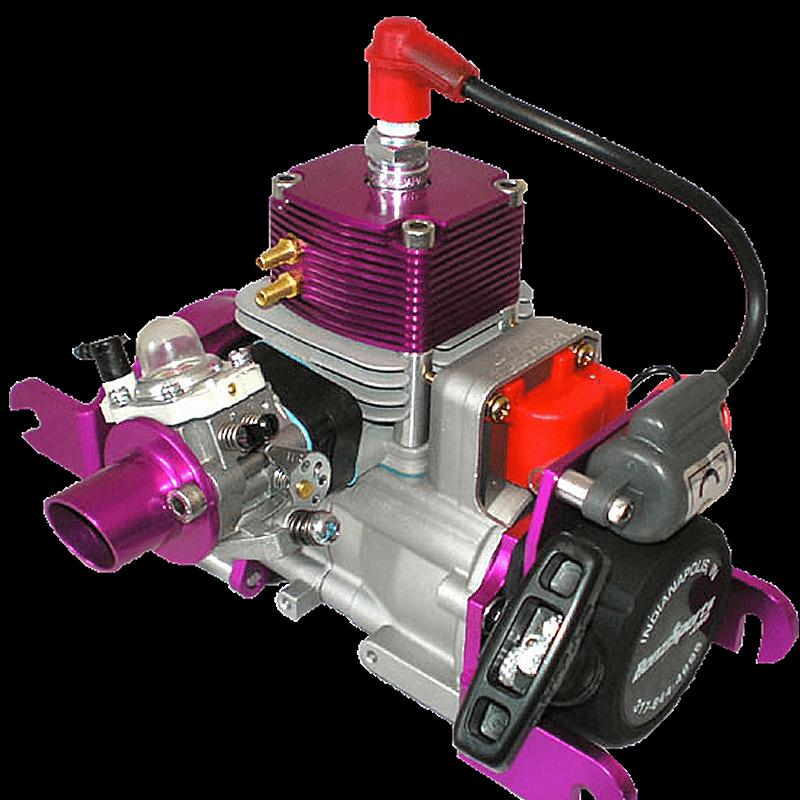
What are some online forums for enthusiasts to explore different gasoline powered RC engine brands and their offerings?
Absolutely, I’d steer you towards RC Universe. It’s a genuine treasure trove of knowledge about all things RC, especially gas-powered engines. Everyone on there is really passionate, and you can find countless threads on different brands, models, and their performances. They’ve got seasoned hobbyists willing to share their wisdom and help guide you on your RC journey.
Then, there’s RC Groups. Similar to RC Universe but with its own unique flare. It’s very much community-oriented, so you’ll get a sense of camaraderie while browsing through lively discussions about the latest and greatest in gasoline-powered engines. Plus, they have a very active marketplace where you can snag some seriously good deals.
Lastly, I’d also recommend RC Tech. It’s a bit more tech-oriented, which is pretty cool if you’re into the nitty-gritty details of how these machines work. From engine tuning to picking the right fuel, these guys have got you covered! The friendly competition there keeps everyone on their toes, which ultimately benefits you as you dig deeper into your RC passion.
Just remember, everyone in these communities started somewhere – don’t be afraid to ask questions and join in on the conversations. Happy exploring!
Investment Consideration for Gasoline RC Engines
When it comes to the average cost and maintenance of gasoline powered RC engines, it’s an investment that needs consideration. Gasoline engines tend to be pricier compared to their nitro and electric counterparts, with prices ranging from $200 to above $1000, depending on the brand, power, and specifications.
- The DLE 20cc gasoline RC engine which costs around $230, for instance, is a dependable choice for those seeking a balance between cost and performance.
- The Zenoah G320RC, on the other hand, can set you back more than $300, boasting unmatched power and dependability.
But remember, the power and longevity these engines bring to your RC experience make this higher initial investment worthwhile. In terms of maintenance, gasoline engines, often compared to a “labour of love”, require regular checks and cleaning, especially if used in off-road and harsh environmental conditions. You might need to replace components from time to time, but most of them are easy to find either from the official manufacturers’ websites or from specialty RC hobby shops online.
Maintenance isn’t just about keeping your engine running—it’s about optimizing its performance and extending its longevity. So, embrace it. The satisfaction that comes from a well-maintained gasoline engine roaring into life, ready to power your RC vehicle at hair-raising speeds, makes all the care and attention worthwhile.
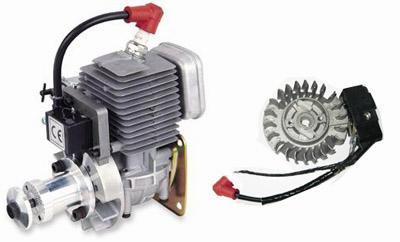
What kind of maintenance do gasoline powered RC engines require?
Oh, you’ve got a gasoline-powered RC engine? Good on you, buddy! These little babies certainly offer a thrilling experience, but there are a few maintenance steps you need to stay on top of. Firstly, always make sure your engine is cleaned properly after each run. A bit of an old school approach, and it might feel like a chore, but trust me, it’s well worth it. Now, you’ll need to ensure proper fueling too. These engines don’t run on fairy dust, so always check for clean fuel and appropriate oil mix.
In the event of any malfunctions, having a look at the spark plug can be a great first step. A misbehaving spark plug often throws a wrench in the works, literally. Staying on top of the air filters is another non-negotiable; even a minor blockage can drastically affect your engine’s performance. Follow this up by regularly checking your engine’s head bolts and carburetor. Make sure they’re neither too tight nor too loose.
But, and here’s the thing I always stress on – never forget to break in your engine properly after purchase. Just like a superstar athlete needs to warm up before a game, your RC engine benefits from a little TLC before it hits high gear. Be patient, let it break in and you’ll be rewarded with smooth and consistent performance. Trust me on this one!
Now, it might seem a tad bit overwhelming, but once you get the hang of it, it’s a rewarding process that will ensure your RC engine runs in the best possible condition for years to come. Happy racing!
In the world of remote-controlled vehicles, the thrilling growl of gasoline powered RC engines stands unmatched. It’s a love affair, really – there’s simply nothing like harnessing the raw, powerful energy they offer, feeling every pulse of their mechanical heart through the controls. It’s a sensory adventure that commands your full attention – the tactile sensation of the remote, the potent smell of gasoline, the visceral sound of the engine roar. Yes, the cost and maintenance may seem daunting at first, but ask any hobbyist, they’ll assure you – it’s totally worth it. The upkeep feels less like a chore, and snags along the way become rewarding challenges. The thrill and satisfaction these beasts provide, in addition to their impressive longevity, pile up to offer a value proposition that nitro or electric simply can’t compete with. Whether you’re a seasoned RC enthusiast or a beginner finding their feet, gasoline powered RC engines provide an adrenaline-fueled experience that’s hard to beat. And in case you’re wondering – yes, it’s a sentiment that echoes in the hearts of every petrolhead out there. Welcome to the thrilling, vibrant world of gasoline powered RC engines, my friend. Get ready to play with fire and feel the power in your hands – it’s going to be one heck of a ride!

